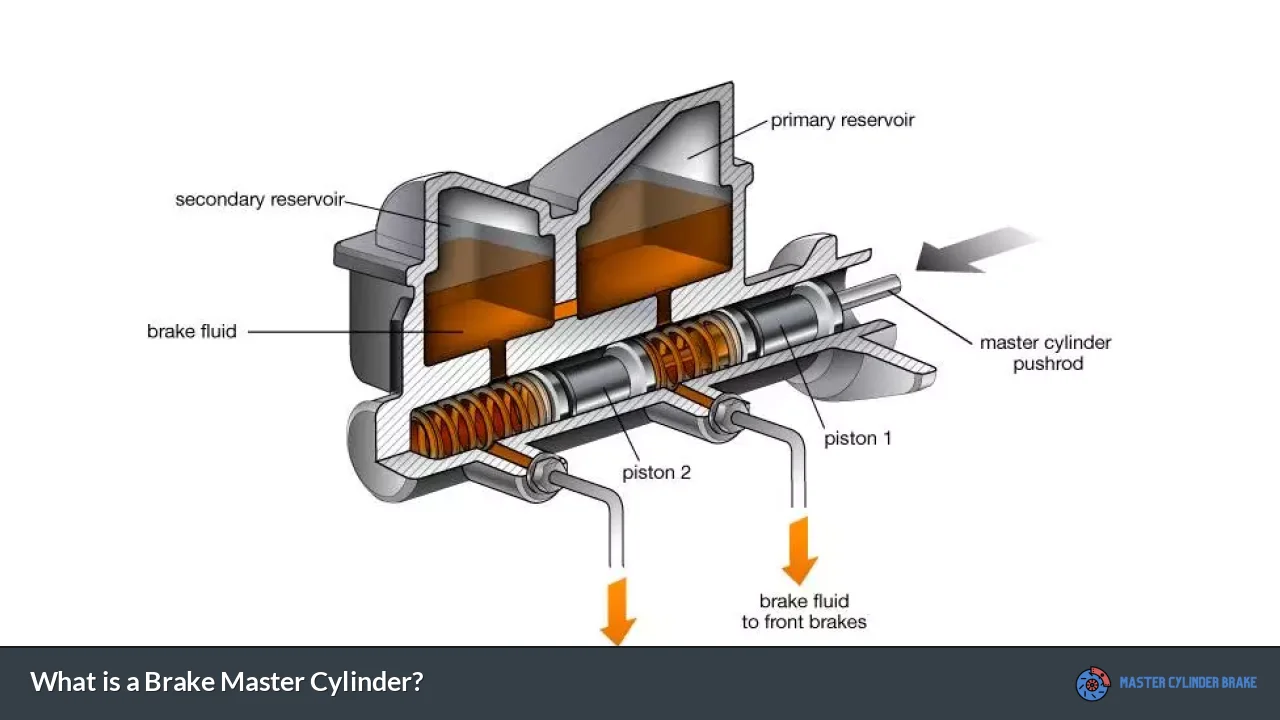Master cylinders are a crucial element of your car’s brake system. They transform the pressure you apply to the pedal into hydraulic energy to apply brakes.
Typically, brake fluid is sent via two distinct circuits to different sets of wheels. If one of those circuits malfunctions, your brakes may not function optimally and cause your car to slide when applying the brakes.
⚡️Another article: What Is the Brake Master Cylinder?
Brake Fluid Leaks
Brake fluid is an integral component of your car’s braking system. It ensures that the force you apply on the brake pedal is evenly distributed to all four wheels, providing for efficient and secure stopping power.
Brake lines transport brake fluid from the master cylinder to various components throughout the system and inside each wheel. They are built to withstand driving conditions and road debris, but can also deteriorate over time due to damage that could result in fluid leaks.
Air bubbles in the brake line can alter pressure distribution and render your brakes unreliable and unsafe. Signs such as a soft or weak pedal, an illuminated warning light on the dashboard, and difficulty stopping your vehicle should all indicate need for service right away – otherwise, you could put yourself and other drivers at risk!
Brake Pedal Feels Soft
If your brake pedal feels soft, it could be indicative of an underlying issue with your vehicle. Be proactive and get this issue taken care of promptly to avoid further damage.
Your brakes depend on hydraulic pressure to function, which is maintained by your vehicle’s master cylinder. A malfunctioning cylinder can make your brakes feel spongy since it isn’t providing the required amount of force.
Air in the brake lines is another common issue that may cause your brakes to feel soft. Bleeding your brakes is essential in eliminating air from the system so that they work optimally again.
Always bleed your brakes prior to replacing pads or rotors. Additionally, it is essential that you bleed them whenever adding fluid or when your car is repaired; this procedure can prevent many potential issues in the future.
Brake Warning Light Turns On
Your car’s brake warning light will illuminate when there is an issue with its braking system. This can be a very serious issue that needs to be addressed right away, so take it seriously!
The brake warning light is activated by a sensor in the master cylinder, which monitors fluid level. When this sensor detects low fluid, it illuminates the light.
This can be a serious condition, as low fluid levels could indicate that your brakes have failed and you cannot stop your vehicle at all.
It is essential to check your brake fluid level at least once annually, and it would also be wise to inspect your brake pads as well.
A brake warning light can be caused by several different issues, such as worn brake pads or a burned-out bulb. It’s best to get this checked out by a mechanic promptly upon detection.
Brake Pedal Stays Compressed
If your brake pedal feels spongy, it could be due to an issue with your brake master cylinder. This device converts linear motion and force into hydraulic pressure that is then distributed to the brake calipers or wheel cylinders.
The master cylinder also regulates the amount of hydraulic pressure applied to brake pads or wheel rotors. A brake booster amplifies this force by using vacuum pressure, taking into account any pedal input and amplifying it accordingly.
One of the most common causes of a spongy pedal is air in the system, either due to a fluid leak or air in the hoses. Bleeding your brake lines will eliminate any excess air that has built up over time. If your brake pedal remains spongy, try repeating the bleeding process until it feels firm. If the pedal remains soft, there may be air in your system and require a mechanic for an extensive system inspection.
